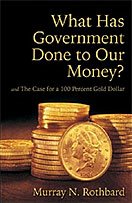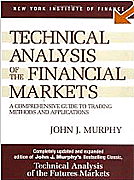Own gold. Pray it doesn't perform!
This from Mineweb.com:
By Lawrence Williams
Posted on Friday , 31 Aug 2007
LONDON -
I am indebted to US broker and analyst, Rick Rule, for the slightly altered quote used as the title of this article. Rick was writing about investment strategy in the post sub-prime markets in an article published in Uranium Report - which also, not surprisingly given the vehicle in which it appeared, took a good look at uranium stocks among others.
The article is perhaps a little long, but well worth reading nonetheless as it is full of sound advice for those who invest in metals and mining stocks. For the full transcript click on http://www.theuraniumreport.com/.
Rick Rule's judgement on this has to be spot on - particularly for US investors. ‘Performance' in the terms gold investors look for suggests dollar collapse and all the financial instability that goes with that scenario. Gold and gold stocks provide insurance against such an event and if viewed upon in that light gold investment has to be part of a commodities-based portfolio - or indeed of any portfolio which carries a degree of insurance against dollar meltdown.
What other strategies does Rick Rule recommend. He feels juniors in general are drastically overpriced - particularly as "Only about 10% of 5,000 odd junior companies have any real value, and most of the market players don't have the ability or the will to discriminate between the good, the bad, and the ugly." As such juniors are, and always have been, risky investments which suggests high rewards if the right stocks are picked, and a total bust for those that die - which is the fate of many. Juniors are particularly vulnerable in times of financial turmoil - except perhaps those which have a good story and good potential in the precious metals sector which may perform better alongside a rising gold price.
Rule was particularly scathing about uranium juniors. "The Uranium mania is a classic example of this." Says Rule. " In 2000, the price of Uranium as a commodity was very cheap, it had to go up, but because the markets had been dormant for so many years, nobody cared. When the price did go up, people began to care, and after the price had increased enough that it didn't have to rise further, people became obsessed. By this year, 550 "uranium" companies littered the investment landscape. The vast majority (maybe 500!) shared two serious faults: First, THEY HAD NO URANIUM. If the price of something you don't have any of rises, it makes no real difference to you. Secondly, after a 25 year "bear market" in uranium, there are perhaps 30 qualified exploration teams left to run 550 companies".
On base metals Rule believes "Own only "best of breed" base metals stocks. While base metals prices are not high by historical standards, the industry is enjoying excellent operating margins, supplies will increase, and consumer utility is diminished by this pricing environment. Projects in the lowest cost quartile worldwide will perform for you. Chasing the marginal producers to maximize returns in commodity up cycles is a strategy to employ at the bottom of the next "bear market", not now."
Overall, these comments make a huge amount of sense - and there is much more of value in Rule's article. But then this kind of investment strategy should have always been the case. It's not necessarily just true of investment in a time of stock market turmoil. The investor who aims to reduce risk is generally in the long term more successful in creating and maintaining wealth than the out and out speculator looking for huge returns from dubious resource stocks. Always aim to buy ‘quality'. While the upside potential may be more limited than with a high flyer, which may crash back down to earth even more rapidly than it has risen, the downside is protected too.
Look for low cost producers which can weather storms in the commodity markets. Perhaps look too at Royalty companies which make money as long as the deposits they have interests in keep producing and are not constrained in their income necessarily by ever-rising operating costs.
As a cautionary tale, remember Bre-X. Investment hype built the stock price to huge levels, but it all came crashing down to earth when it was ascertained the gold values attributed were fraudulently manipulated. But it doesn't have to be a fraud for some resource stocks to see their values decimated. Investment hype can see market capitalisations soar to hugely unrealistic levels.
Personally I would steer away from companies operating in risky political environments, however good their deposits. A change of heart by an existing government - or perhaps just a change of government - can see concessions revoked, previously firm deals torn up and the company involved may have little financial recourse, particularly where local courts tend to follow the line of the government of the day regardless.
It's a jungle out there, but it is possible to protect oneself against the predators which stalk it by investing in sound companies with low production costs operating in more friendly environments.
By Lawrence Williams
Posted on Friday , 31 Aug 2007
LONDON -
I am indebted to US broker and analyst, Rick Rule, for the slightly altered quote used as the title of this article. Rick was writing about investment strategy in the post sub-prime markets in an article published in Uranium Report - which also, not surprisingly given the vehicle in which it appeared, took a good look at uranium stocks among others.
The article is perhaps a little long, but well worth reading nonetheless as it is full of sound advice for those who invest in metals and mining stocks. For the full transcript click on http://www.theuraniumreport.com/.
Rick Rule's judgement on this has to be spot on - particularly for US investors. ‘Performance' in the terms gold investors look for suggests dollar collapse and all the financial instability that goes with that scenario. Gold and gold stocks provide insurance against such an event and if viewed upon in that light gold investment has to be part of a commodities-based portfolio - or indeed of any portfolio which carries a degree of insurance against dollar meltdown.
What other strategies does Rick Rule recommend. He feels juniors in general are drastically overpriced - particularly as "Only about 10% of 5,000 odd junior companies have any real value, and most of the market players don't have the ability or the will to discriminate between the good, the bad, and the ugly." As such juniors are, and always have been, risky investments which suggests high rewards if the right stocks are picked, and a total bust for those that die - which is the fate of many. Juniors are particularly vulnerable in times of financial turmoil - except perhaps those which have a good story and good potential in the precious metals sector which may perform better alongside a rising gold price.
Rule was particularly scathing about uranium juniors. "The Uranium mania is a classic example of this." Says Rule. " In 2000, the price of Uranium as a commodity was very cheap, it had to go up, but because the markets had been dormant for so many years, nobody cared. When the price did go up, people began to care, and after the price had increased enough that it didn't have to rise further, people became obsessed. By this year, 550 "uranium" companies littered the investment landscape. The vast majority (maybe 500!) shared two serious faults: First, THEY HAD NO URANIUM. If the price of something you don't have any of rises, it makes no real difference to you. Secondly, after a 25 year "bear market" in uranium, there are perhaps 30 qualified exploration teams left to run 550 companies".
On base metals Rule believes "Own only "best of breed" base metals stocks. While base metals prices are not high by historical standards, the industry is enjoying excellent operating margins, supplies will increase, and consumer utility is diminished by this pricing environment. Projects in the lowest cost quartile worldwide will perform for you. Chasing the marginal producers to maximize returns in commodity up cycles is a strategy to employ at the bottom of the next "bear market", not now."
Overall, these comments make a huge amount of sense - and there is much more of value in Rule's article. But then this kind of investment strategy should have always been the case. It's not necessarily just true of investment in a time of stock market turmoil. The investor who aims to reduce risk is generally in the long term more successful in creating and maintaining wealth than the out and out speculator looking for huge returns from dubious resource stocks. Always aim to buy ‘quality'. While the upside potential may be more limited than with a high flyer, which may crash back down to earth even more rapidly than it has risen, the downside is protected too.
Look for low cost producers which can weather storms in the commodity markets. Perhaps look too at Royalty companies which make money as long as the deposits they have interests in keep producing and are not constrained in their income necessarily by ever-rising operating costs.
As a cautionary tale, remember Bre-X. Investment hype built the stock price to huge levels, but it all came crashing down to earth when it was ascertained the gold values attributed were fraudulently manipulated. But it doesn't have to be a fraud for some resource stocks to see their values decimated. Investment hype can see market capitalisations soar to hugely unrealistic levels.
Personally I would steer away from companies operating in risky political environments, however good their deposits. A change of heart by an existing government - or perhaps just a change of government - can see concessions revoked, previously firm deals torn up and the company involved may have little financial recourse, particularly where local courts tend to follow the line of the government of the day regardless.
It's a jungle out there, but it is possible to protect oneself against the predators which stalk it by investing in sound companies with low production costs operating in more friendly environments.
Labels: gold, inflation, markets, mining stocks















![[Most Recent Quotes from www.kitco.com] [Most Recent Quotes from www.kitco.com]](http://www.kitco.com/images/live/t24_au_en_usoz_6.gif)
![[Most Recent Quotes from www.kitco.com] [Most Recent Quotes from www.kitco.com]](http://www.kitco.com/images/live/au_go_0030_ny.gif)
![[Most Recent Quotes from www.kitco.com] [Most Recent Quotes from www.kitco.com]](http://www.kitco.com/images/live/au_go_0365_ny.gif)
![[Most Recent Quotes from www.kitco.com] [Most Recent Quotes from www.kitco.com]](http://kitconet.com/charts/metals/silver/t24_ag_en_usoz_4.gif)

















0 ΣΧΟΛΙΑ (COMMENTS):
Post a Comment
<< Home